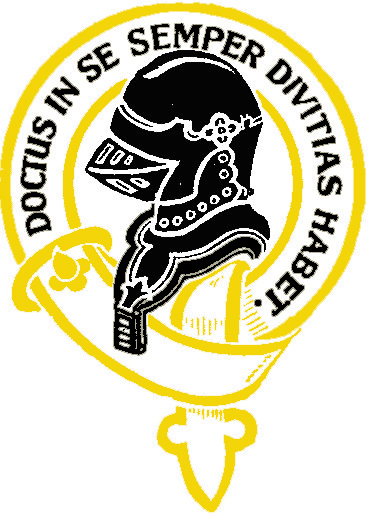School Motto
"Doctus In Se Semper Divitias Habet"
Can any of us forget the school motto? How many times have we written it out, probably many years ago, but we still remember.
I never studied Latin at School, because I joined the Institute in September 1960 on a 13+ scholarship from Woodchurch Secondary School. I joined in 3B, and the “B” form never took Latin. I was quite pleased at the time, but as time has passed I felt that there was a missing piece in my knowledge. Actually quite a lot of missing pieces, but that’s another story.
The motto fascinated me, “A wise man has riches within himself”, as I was always told. I believe that there are many instances of mistranslation in history, but I didn’t know any better, in this case I just believed what I was told, like almost everything at school. It has taken me a long time, but I finally decided to investigate.
Actually, the investigation was nothing more that typing the motto into Google, and seeing what happened. What happened was very quick, and very interesting. It turns out that our school motto is from a Greek proverb, one of Aesop’s Fables, in fact.
Three things were immediately obvious there had been a possible mistranslation, a change of emphasis, and a missing word. The phrase is more usually translated as “A learned, or educated man always has riches within himself”. The missing word is the first word “Homo”. So, the full proverb is more usually stated as “Homo doctus in se semper divitias habet” The proverb is associated with Simonides, a legendary poet of ancient Greece.
The proverb itself is a line from a poem by Phaedrus, a Roman poet, who told this story about Simonides:
A learned man always has rich inner resources. Simonides, that extraordinary author of lyric poems, had found an excellent remedy for his straitened circumstances by travelling around the most famous cities of Asia, singing the praises of victorious athletes in exchange for a fee. When he had grown wealthy in this venture, he was ready to take a sea voyage and go back to his native land (he was born, so they say, on the island of Ceos). He boarded a ship, but a terrible storm (plus the sheer age of the ship) caused it to sink in the middle of the sea. Some of the passengers grabbed their money belts, while others held onto their valuables and any possible means of subsistence. A passenger who was more curious than the rest asked the poet, 'Simonides, why aren't you taking along any of your own stuff?' He replied, 'All that is mine is right here with me.' It turned out that only a few were able to swim ashore, while the majority drowned, weighed down by what they were carrying. Then bandits arrived and took from the survivors whatever they had brought ashore, stripping them naked. As it happened, the ancient city of Clazomenae was not far off, which is where the shipwrecked people then turned. In this city there lived a man inclined to literary pursuits who had often read Simonides's compositions and who was his great admirer from afar. He recognized Simonides simply from his manner of speaking and eagerly invited him to his house, regaling him with clothes and money and servants.
Meanwhile, the rest of the survivors carried around placards, begging for food. When Simonides happened to run into them, he took one look and exclaimed, As I said: all that is mine is right here with me, but everything that you took with you has now vanished.'
For me, this now raises even more questions, when did the school adopt this motto? Who was instrumental in selecting it? Why was the first word dropped? Why was “wise” man used in the translation when “educated” man would have made more sense to a school? If anyone can enlighten me, I would be grateful for the information.
editor@BIOB.co.uk
Last Saved Saturday, February 24, 2024 12:54



